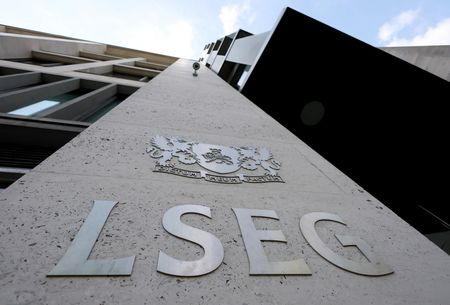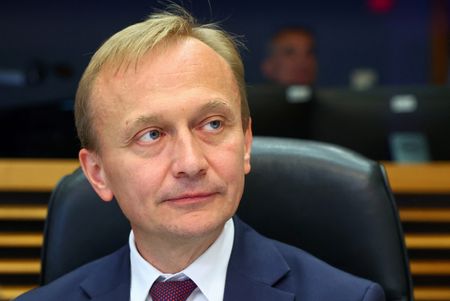By Maria Martinez
BERLIN (Reuters) -The German cabinet approved on Wednesday the country’s medium-term fiscal plan that allows it to ramp up spending while complying with European fiscal rules.
Each year, EU member states must submit an annual progress report on the implementation of their national medium-term fiscal-structural plan to the Commission to comply with new European fiscal rules.
In March, Germany approved plans for a massive spending surge, creating a 500-billion-euro ($580.45-billion) infrastructure fund and ring-fencing most defence investment from national rules that otherwise cap borrowing, spurring doubts over whether such a surge would be compatible with EU fiscal restrictions.
“The German government had successfully agreed with the European Commission, in constructive discussions, on a multi-year path for the maximum allowable growth expenditures for the years 2025 to 2029,” a finance ministry spokesperson said.
“In doing so, the rules of the Stability and Growth Pact were consistently applied and available flexibilities used.”
Due to investments in infrastructure, security and defence this year and next, net expenditures in the German state budget will increase significantly. Nevertheless, from 2027, lower spending growth is planned, the spokesperson said.
This aims to achieve the goal of fiscal consolidation by the end of the planning horizon in 2029, the spokesperson added.
The German government aims to strengthen government revenue through its economic measures and structural reforms to revive its lethargic economy.
Submitting the mid-term fiscal plan was only possible for Germany once the details of the 2025 and 2026 budget had been finalised.
After former chancellor Olaf Scholz’s coalition collapsed in November, the last government ran out of time to pass the 2025 budget. Germany has been operating on a provisional budget since the start of the year.
Germany’s cabinet approved at the end of June a draft budget for 2025 and a budget framework for 2026, thus making it possible to finalise the mid-term fiscal plan for Brussels.
($1 = 0.8614 euros)
(Reporting by Maria Martinez and Christian Kraemer, Editing by Madeline Chambers and Louise Heavens)










